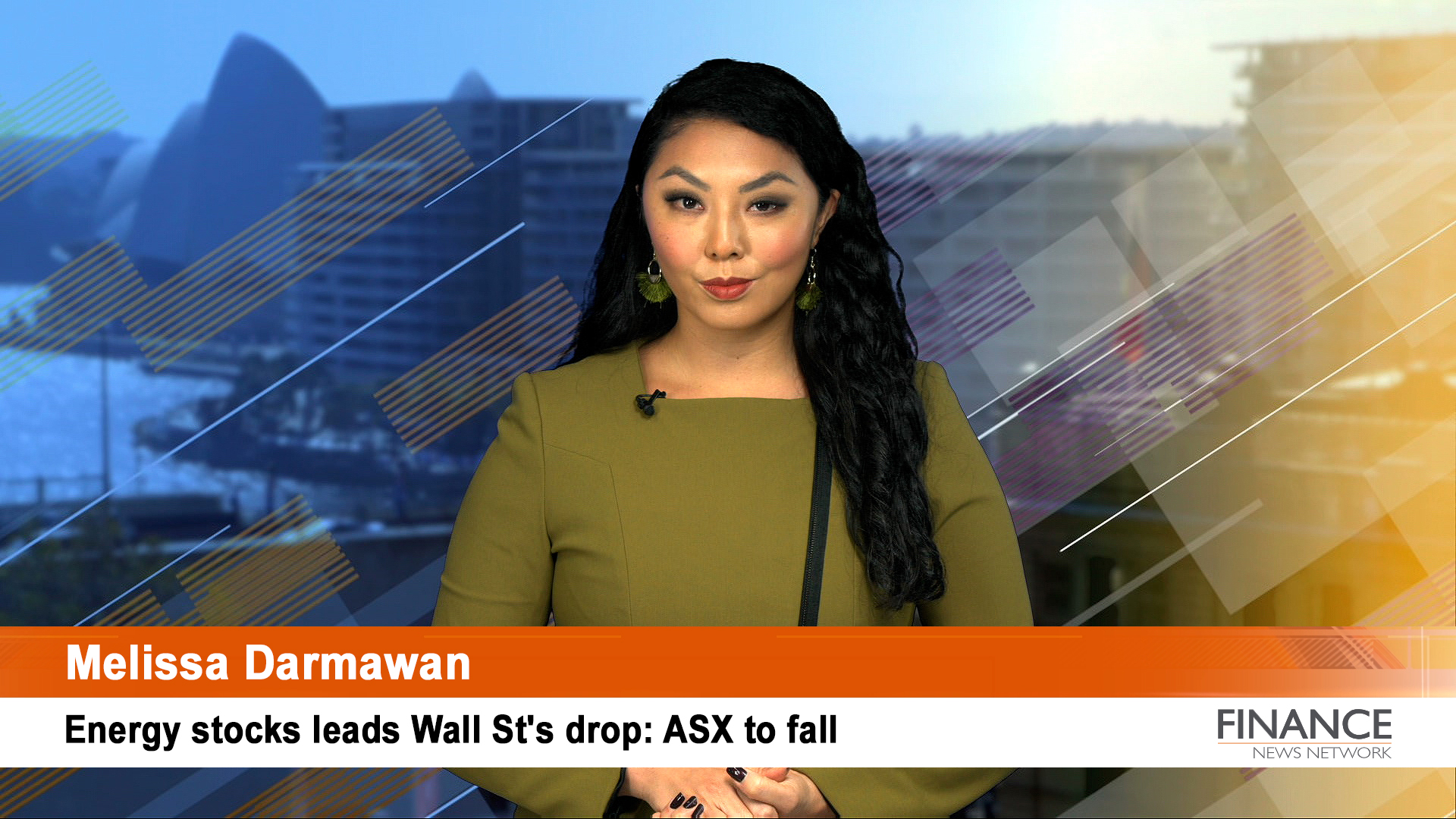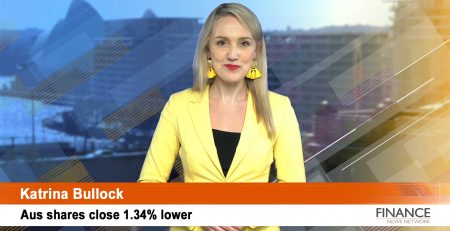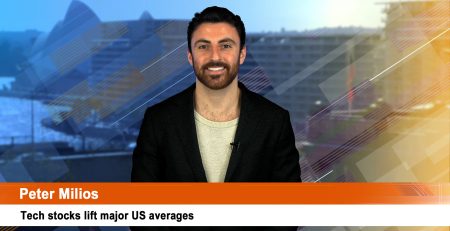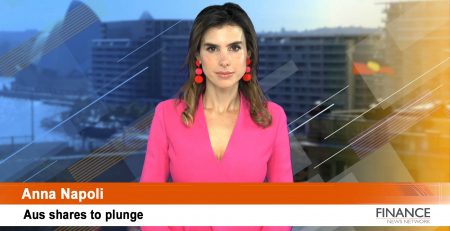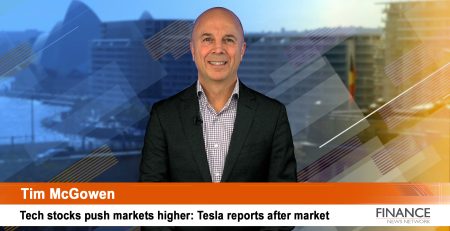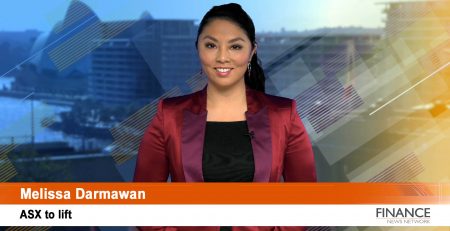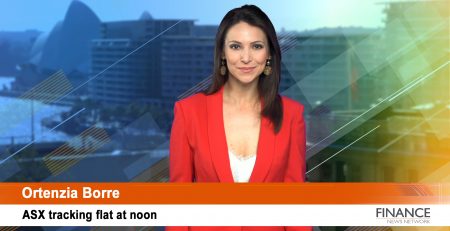Energy stocks leads Wall St’s drop, BHP pays record dividend: ASX to fall
Choppy trade defined Wall St's performance to close lower as investors weigh macro risks & rate hikes. Energy stocks were the worst performer, find out why. ASX gains as corporate earnings unveils. RBA meeting minutes are due.
The Australian sharemarket is set to fall after cautious and choppy trade on Wall St.
Investors weigh macro risks & rate hikes
An attempted rebound failed with US stocks closing lower as tensions between Russia and Ukraine continue to escalate. Adding to concerns are investors feeling uneasy about the Fed raising rates this year. Fed president James Bullard came out and said that the Fed should front-load these rate hikes to combat rising inflation, spurring concerns of the impact of an aggressive rate hike in the coming years.
The White House is worried that Russia could invade Ukraine sooner than anticipated, creating destabilisation in the market and prompted the sell-off on Friday. Foreign Russian Minister Sergei Lavrov proposed to President Putin that Russia continue along the diplomatic path talking with the west, in which Putin replied with “all right”.
Energy prices soared amid this, though oil prices have crept higher in recent times. Analysts said that these moves could supercharge the price of oil to US$100 a barrel which would be the first time since 2014 if it does.
Russia is an important supplier of crude oil and natural gas to Western Europe and experts say that rising energy prices would see the clearest impact in Western Europe though it would also trickle around the globe.
Elsewhere inflation has reached historic highs with Louis Fed President James Bullard maintaining the view that the Fed does need to raise rates by at least a full percentage point by July. Now Bullard said that the deeper rate hikes are needed to ease soaring prices. The latest inflation report showed that prices rose seven and a half per cent for consumers in January, from the same time a year ago with a price rise across all categories.
Energy stocks performed the worst today. Why?
Given this backdrop, you would think that energy stock would continue to soar, not today. We are changing this up a little, let’s pull up the S&P 500 sectors, energy stocks were the worst performers, down 2.2 per cent, followed by financials by 1.1 per cent, and healthcare. The rest closed lower with communication services and consumer discretionary marginally higher.
So you might be wondering why this might be the case if oil prices are set to hit US$100 a barrel? There was a very interesting note by Michael Wilson, chief US equity strategist from Morgan Stanley. He said a war “materially increases the odds of a polar vortex for the economy and earnings”. A spike in energy prices “would destroy demand, in our view, and perhaps tip several economies into an outright recession”.
This could be what is on energy traders minds as they question themselves at what point are oil prices going to go against momentum.
The birth of the 2nd generation mustang
If we go back to history, in the 1970s there was an oil demand decline, which prompted the first shift towards energy-saving technologies. For the car lovers out there, the second-generation Mustang was revealed in September 1973 as a 1974 model. A month later, the oil crisis began, so smaller, fuel-efficient cars became even more desirable.
Could this be the catalyst for EV cars to take-off?
Now that we are in 2022, the focus is on electric vehicles so you never know, this might be the catalyst for EVs to really take-off and our local miners who supply ingredients for the parts to power up.
Meanwhile, earnings season rolls on and investors continue to eye down the results to offset this landscape. Until we receive clarity around how central banks around the world look to tighten conditions, volatility is here to stay.
Figures around the globe
At the closing bell, the Dow Jones lost 0.5 per cent to 34,566, the S&P 500 fell 0.4 per cent to 4,402 while the Nasdaq closed lower by less than a point to 13,791.
The yield on the 10-year treasury note rose 5 basis points to 1.99 per cent, gold rose on a firmer greenback.
Across the Atlantic, European markets closed lower as investors sold out of companies with exposure to Russia. Paris lost 2.3 per cent, Frankfurt fell over 2 per cent and London’s FTSE closed 1.7 per cent lower.
UK mining company EVRAZ, where most of its revenues comes from Russia, sank 23.3 per cent on Russian invasion fears while European investors sold out of banks with exposure to Russia with Société Générale tumbling 6.7 per cent and UniCredit fell 4.7 per cent.
Asian markets closed lower. Tokyo’s Nikkei fell 2.2 per cent, Hong Kong’s Hang Seng lost 1.4 per cent while China’s Shanghai Composite fell almost 1 per cent.
ASX bucks trend to rally
Yesterday, the Australian sharemarket closed 0.4 per cent higher at 7,244 as investors sought refuge in corporate earnings, shrugging off weakness from Wall St.
Banks, energy and gold majors rallied as investors fret over the potential economic and financial consequences of the Russian and Ukraine invasion. The concerns provided the fuel for these sector bulls to run offsetting the mixed finish across the index with healthcare as the worst performer.
Beach Energy (ASX:BPT) soared as the oil player’s performance was turbocharged by the company reiterating its financial year 2022 production guidance for 21–23 million barrels of oil equivalent. The company also said that it was on track to meet its medium-term target of million barrels of oil equivalent by financial year 2024.
Its strong net cash position also eased fears over upcoming capital expenditure to fund financial year 2022 and financial year 2023 growth with the oil major set to maintain a net gearing ratio of less than 10 per cent. They were the best performer of the session, closing 9.4 per cent higher at $1.63. It was followed by shares in Regis Resources (ASX:RRL) and Evolution Mining (ASX:EVN).
The worst-performing stock was Novonix (ASX:NVX) as the battery maker continues to fall from its 300 per cent surge from the second half last year, closing 10.8 per cent lower at $5.81. It was followed by shares in Imugene (ASX:IMU) and Liontown Resources (ASX:LTR).
Westpac (ASX:WBC) led the major banks higher, adding 4.8 per cent to $23.88. National Australia Bank (ASX:NAB) rose 2 per cent to $30.43, ANZ Bank (ASX:ANZ) was up 1.4 per cent to $28.20, Commonwealth (ASX:CBA) climbed 1.5 per cent to $100.04 and Macquarie (ASX:MQG) closed 0.5 per cent higher at $194.22.
Bendigo and Adelaide Bank (ASX:BEN) jumped 4.2 per cent at $9.65 after the nation’s fifth largest lender reported first-half financial year 2022 cash earnings ahead of market expectations, buoyed by a larger writeback of provisions which was expected. However, the outlook looks less optimistic with the bank expecting revenue to fall in the second half of this financial year, citing net interest margin pressures – something we have heard from its peers so this is not new news. Also due to reductions in non-interest income due to the sale of its merchant services business and the non-recurrence of a shareholder payment from Cuscal.
Praemium (ASX:PPS) tanked 13.9 per cent to $1.06 after the investment platform posted first-half financial year 2022 earnings below expectations due to higher costs and one-off items from the sale of its international business to Morningstar. Additionally, the full-year earnings guidance provided was below consensus estimates by 20 per cent.
JB Hi-Fi (ASX:JBH) soared 5.4 per cent to $51.71 after the company unveiled a $250 million share buyback after posting its first-half financial year 2022 results. The buyback is set to bring the balance sheet back to normal gearing levels after two years of elevated retained earnings. Analysts noted that the company’s momentum continued into January with like-for-like sales growth growing to 3.6 per cent, and two-year growth stable at 22.2 per cent.
In M&A’s, Crown Resorts (ASX:CWN) rose 2.2 per cent to $12.64 after the embattled casino operator recommended shareholders to accept the cash offer of $13.10 a share from US investor Blackstone. The long-running takeover which is set to be executed via a scheme of arrangement is still conditional on various regulatory approvals plus shareholder’s agreement that is slated in the June quarter.
GPT Group (ASX:GPT) gained 1.2 per cent at $5.06 after investors bought in on the company’s material asset revaluations and increased weighting of its portfolio to in-demand industrial assets in the second half this year versus its full-year earnings miss driven by operating costs and high rental forgiveness.
BHP (ASX:BHP) led iron ore players lower, closing 1.1 per cent lower at $48.33. Rio Tinto (ASX:RIO) fell 0.6 per cent to $121.58 and Fortescue Metals Group (ASX:FMG) closed 0.4 per cent lower at $22.75.
SPI futures
Taking all of this into the equation, the SPI futures are pointing to a 0.9 per cent fall.
Local economic news
ANZ and Roy Morgan are set to release its weekly consumer sentiment report.
Though what to keep an eye out for are the minutes from the Reserve Bank from their meeting earlier this month.
Market participants will be combing through the board minutes for further colour on the inflation outlook as they look to strengthen the likelihood of the nation’s first rate hike in a decade.
This comes after governor Philip Lowe’s testimony before the House of Representatives economics committee last week and the speech he gave at the National Press Club, along with the central bank releasing its quarterly statement on monetary policy. Given this backdrop, to uncover anything new might be more on the low side.
Appearing before parliament last week, Dr Lowe reaffirmed that a rise in the cash rate from a 0.1 per cent is plausible this year on the rising inflation landscape and the prospect of the jobless rate dropping below four per cent.
The March quarter consumer price index is due on April 27 and the June quarter report is released on July 27 with the data from these reports set to be reviewed by the central bank before a decision is made on rates. The developments from the Reserve Bank spurred economists to forecast an interest rate rise at the August board meeting.
Company news
BHP (ASX:BHP) is set to pay a record US$1.50 interim dividend after posting a US$9.44 billion half-year profit underpinned by a surge in the price of key commodities. The miner's after-tax profit soared144 per cent from the first half of the previous financial year from US$3.88 billion amid stronger pricing in iron ore, coal, oil and copper. Keep an eye out for more news.
Reporting season
Ansell (ASX:ANN)
BHP Group (ASX:BHP)
DEXUS Property Group (ASX:DXS)
GWA Group (ASX:GWA)
SEEK (ASX:SEK)
Seven West Media (ASX:SWM)
Ex-dividend
Computershare (ASX:CPU) is paying 24 cents 40 per cent franked
Commodities
Iron ore has lost 0.5 per cent to US$149.40. Its futures point to a 5.3 per cent fall.
Gold has gained $31.40 or 1.7 per cent to US$1,874 an ounce. Silver is up $0.51 or 2.2 per cent to US$23.88 an ounce.
Oil has gained $1.87 or 2 per cent to US$94.97 a barrel.
Currencies
One Australian Dollar at 8:25 AM has weakened since yesterday (Fri: 71.37 US cents), buying 71.28 US cents, 52.68 Pence Sterling, 82.38 Yen and 63.06 Euro cents.
Register – Investor event
Our first investor event for the year is on Tuesday 22 February at 12.30 AEST with Shaw & Partner’s market strategist Martin Crabb, and three CEOs presenting. Make your way to fnn.com.au to register for your free online spot.
Copyright 2022 – Finance News Network
Source: Finance News Network

